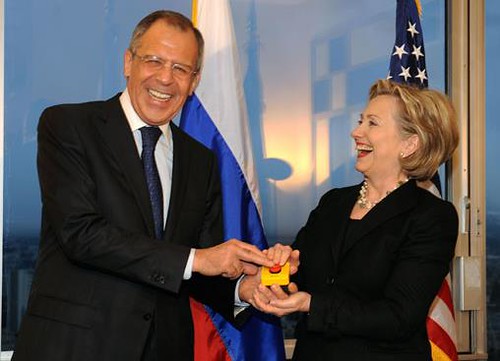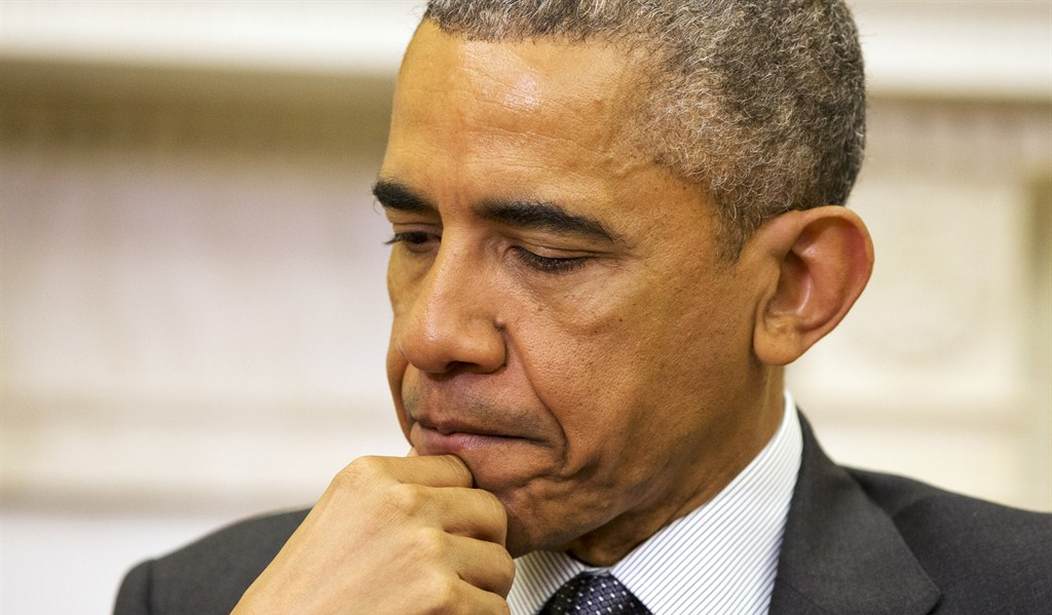For months, the White House has been threatening to veto bipartisan legislation that would assert the legislative branch's constitutional prerogative to review and weigh in on any finalized nuclear deal forged between Western negotiators with the Iranian regime. Senate Foreign Relations Committee Chairman Bob Corker (R-TN) has been telling reporters that he was getting close to securing the 67 votes necessary to overcome a potential Obama veto. It looks like Corker will have at least that many, given his committee's
Advertisement
The Senate Foreign Relations Committee Tuesday approved legislation requiring President Barack Obama to send a final nuclear deal with Iran to Congress for review after adjusting the bill to make it more palatable to many Democrats. The White House initially opposed the bill, but Press Secretary Josh Earnest said the compromise measure appeared to address many of the administration’s concerns, and that Mr. Obama would be willing to sign it. The unanimous committee vote reflected the strong support for the bill by both parties, including Democrats who were persuaded to back the compromise written by the committee’s chairman, Sen. Bob Corker (R., Tenn.), and its top Democrat, Sen. Ben Cardin of Maryland.
You'll notice that the White House has fully retreated from Obama's veto threat, suddenly announcing that the president is actually quite pleased to sign the legislation after all. Why the change of heart? First, this train was leaving the station. Rather than getting publicly humiliated by a strong front of Republicans and Democrats, Obama is "voluntarily" joining the party. (Incidentally, it's extraordinary that this man had to be dragged kicking and screaming into finally supporting legislation designed to tap the brakes on runaway executive power. He's come
Recommended
Advertisement
Under their agreement, Congress would have 30 days to initially review a final agreement struck to diminish Iran’s nuclear capabilities. The measure was already close to a veto-proof majority in Congress. Lawmakers would then be able to vote to approve or disapprove the deal or take no action. If Congress passed a resolution rejecting the deal, Mr. Obama would have 12 days to veto the measure. If he vetoed it, Congress would have 10 days to try to override his veto, which requires a two-thirds majority…The agreement Tuesday would also remove a provision requiring the president to certify that Iran isn’t directly involved in carrying out terrorist attacks against the U.S. and American citizens. Instead, the administration would have to provide detailed reports to Congress on Iran’s terrorist activities and certify to lawmakers every 90 days that Iran is complying with the nuclear agreement.
So, Congress' review period was sliced down from 60 to 30 days, and a provision that would have required Obama to certify that Iran wasn't engaged in terrorism against the United States was withdrawn, under Democratic pressure. Think about
Advertisement
Advertisement
Vladimir Putin blew a geopolitical raspberry at the Obama Administration on Monday by authorizing the sale of Russia’s S-300 missile system to Iran. The Kremlin is offering the mullahs an air-defense capability so sophisticated that it would render Iran’s nuclear installations far more difficult and costly to attack should Tehran seek to build a bomb. Feeling better about that Iranian nuclear deal now? The origins of this Russian sideswipe go back to 2007, when Moscow and Tehran signed an $800 million contract for delivery of five S-300 squadrons. But in 2010 then-President Dmitry Medvedev stopped the sale under pressure from the U.S. and Israel. The United Nations Security Council the same year passed an arms-embargo resolution barring the sale of major conventional systems to the Tehran regime. That resolution is still in effect, but the Kremlin no longer feels like abiding by it. With the latest negotiating deadline passed and without any nuclear agreement in place, Moscow will dispatch the S-300s “promptly” to the Islamic Republic, according to the Russian Defense Ministry.
Advertisement
As you digest that, may I remind you that under the terms of the Iran nuclear deal, Putin's Russia would wield its own unilateral veto power over re-implementation of sanctions if the regime (again) proves itself unworthy of the world's trust? Bravo, all around:

























Join the conversation as a VIP Member